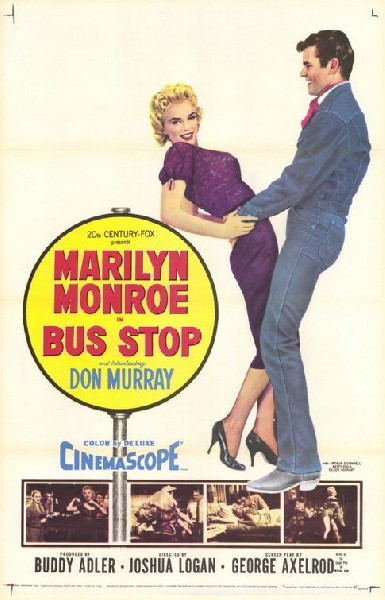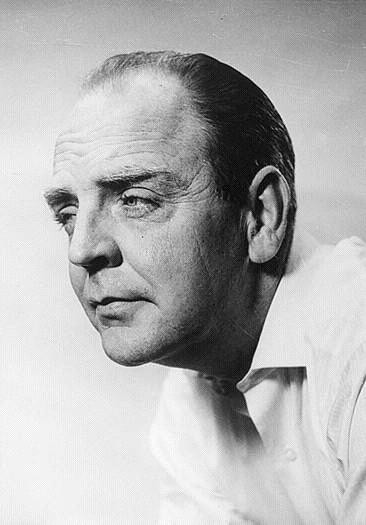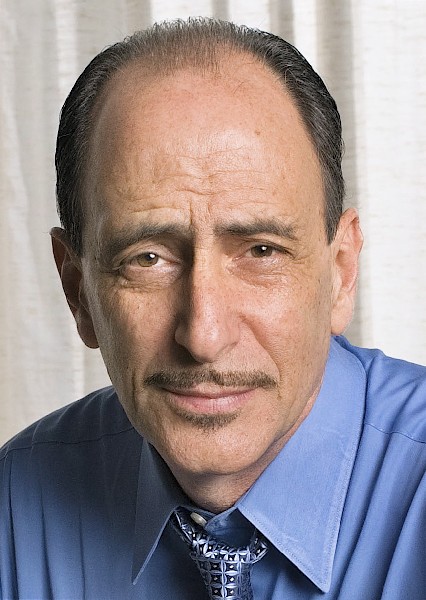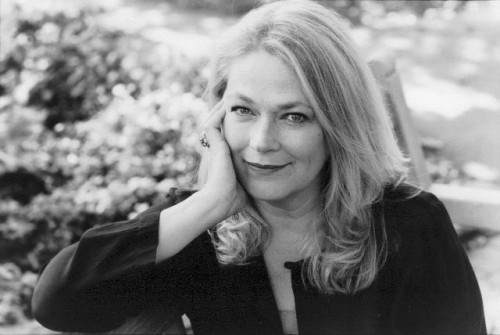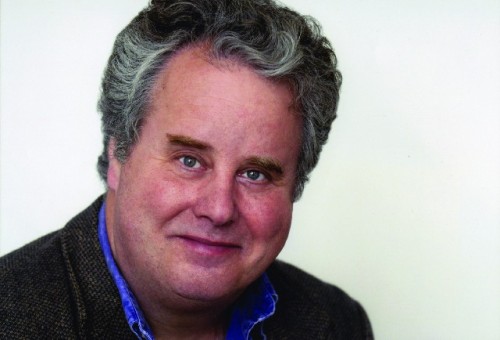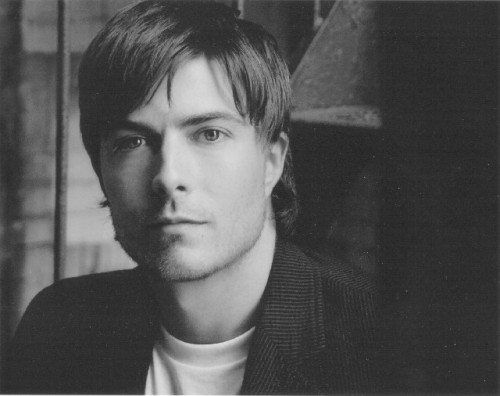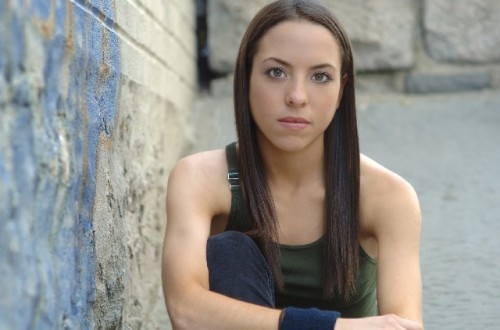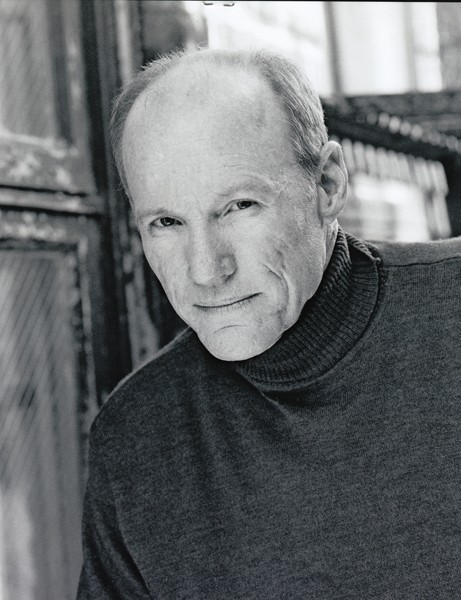Bus Stop At Huntington Theatre Company
In A Blizzard In Kansas Theatrically Trapped
By: Mark Favermann - Sep 25, 2010
Bus Stop
by William Inge
Directed by Nicholas Martin
Technical Artists: Scenic design by James Noone, Costume design by Miranda Hoffman, Lighting design by Philip Rosenberg, Sound design by Alex Neumann, Casting by Alaine Alldaffer, Production stage manager Leslie Sears, Stage manager Kevin Robert Fitzpatrick.
Cast: Ronete Levenson as Elma Duckworth, Karen MacDonald as Grace Hoyland, Adam Lefevre as Sheriff Will Masters, Nicole Rodenburg as Cherie, Henry Stram as Dr. Gerald Lyman, Will LeBow as Carl, Noah Bean as Bo Decker and Stephen Lee Anderson as Virgil Blessing.
The Huntington Theatre Company
Boston University Stage
264 Huntington Avenue, Boston, MA,
Three Acts and two intermissions.
Sept. 17 to Oct.17, 2010
Box Office: 617-266-0800
At the beginning of a new season, it is hoped that the first production for a theatre company is a booming success. Unfortunately, the Huntington Theatre Company’s production of William Inge’s Bus Stop is a bit of a bus wreck, not just a minor fender bender, but a rear end collision. Directed by the usually astute Nicholas Martin, the Huntington’s and Williamstown Theatre Festival’s former artistic director, the play is visually appealing but harmonically challenged. This interpretation of Bus Stop is simply not prose poetic or rhythmic. The production is theatrically off-key. Designed by James Noone, the set is big, bold and rather beautiful, even overwhelmingly so. So big, that it at times seemed to literally submerge the actors.
In terms of artistic quality, the casting is very mixed. While the supporting characters are all quite good and in some cases excellent, the two major characters seem to be the least skilled and the least believable in their roles. The production is neither sharply focused nor crisp. It sort of just happens. Unfortunately, this is all a problem of pacing, performance and ultimately direction.
The story is Playwright Inge’s odd snapshot album of dysfunctional yet mundane Midwestern life in the mid '50s set over a 18 hour period in an out of the way Kansas town. The two leads are an uneducated but supposedly sexy singer from the Ozarks, Cherie, played by Nicole Rodenburg. She has attracted the attention of a young cowboy, Bo, played by Noah Bean.They met at a club in Kansas City near the stockyards where she “sings.” Somehow, he Shanghais her onto a bus headed for his ranch in Montana. He is awkward and naive. She is an odd mix of experience and lack of direction. Cherie feels threatened by Bo. She then finds herself trapped at a bus stop, actually a diner, in the middle of Nowhere, Kansas during a blizzard. At times, I felt like I was trapped there as well.
The young cowboy, whose intentions are strangely honorable, cannot control his temper or understand why this more experienced woman will not take him seriously. He is puzzled why she rejects him when he begins acting jealous and possessive. Though love and risque relationships take their lumps, all things seem to get resolved in the end.
There are side stories of a randy middle aged diner owner, played with characteristic wit and charm by Karen MacDonald. The just as randy, middle age bus driver is played by Will LeBow in a naturalistic characterization projecting ease and humor. Another subplot involves a young high school waitress played by Ronete Levenson and an alcoholic former professor from a liberal Eastern college played by Henry Stram. The latter description got a big laugh from the audience. Both roles are extremely well performed. The parts of the Sheriff played by Adam LeFevre and the older cowboy Virgil Blessing played by Stephen Lee Anderson are well performed.
Only the main protagonist and his love interest leave much to be desired. Cherie's accent and voice are irritating as is the way she looks and even moves. Her wig was just awful and her dresses were worse. Made up as she was, she is just not sexy, just dowdy and cheap looking. Disappointingly, Nicole Rodenburg is ultimately an anti-Marilyn Monroe. The cowboy Bo seems to yell most of his lines. He is not just chewing on the scenery but shoveling it into his mouth as if the character (and the actor) had been deprived of attention his whole life. Noah Bean's performance is totally lacking in any subtlety. There is nothing appealing about either of the characters Cherie and Bo or their portrayals. True sexual or even dramatic tension do not exist between the two. Director Martin seems tone deaf to both of these presumably more talented actors than they were allowed to show.
Bus Stop, was a popular 1956 film directed by Joshua Logan for 20th Century Fox starring Marilyn Monroe and other luminaries Don Murray, Eileen Heckart and Hope Lang. The film was released on August 1956. Unlike most of Marilyn Monroe's movies, Bus Stop was neither a full-fledged comedy nor a musical, but rather a dramatic piece. Monroe does however sing one song in the film, That Old Black Magic composed by Harold Arlen and Johnny Mercer. The film Bus Stop was based on two plays by William Inge People In the Wind and Bus Stop. Supposedly, the inspiration for the play came from people Inge had met in the tiny bus stop town of Tonganoxie, Kansas.
William Motter Inge (May 3, 1913-June 10, 1973) was a playwright and novelist, whose works often featured lonely protagonists burdened with strained sexual relations. In the early 1950s, he had a string of memorable Broadway productions, and one of these, Picnic, earned him the Pulitzer Prize. This was also made into a film. With his often haggard portraits of small-town life set in the American heartland, Inge was referred to as the "Playwright of the Midwest."
The problems with the play are many. First, even though there is a quaint period feeling to the set and costumes, it feels dated and almost foreign. This is a function of the script interpretation, a translated period piece from 1956 that lacks a sense of direction and sexual or dramatic tension. Secondly, there is a tonal problem to the production. Literally, it seemed that it was not michrophoned quite right, and some of the actors’ voices just got muffled or lost at various times. This was exaggerated by accents that varied widely as well. The play was set in rural Kansas, not Oz. The third and the most major issue was the bad or seemingly inappropriate performances by Cherie and Bo. Both were not only rather unbelievable but quite annoying in their portrayals. The two leads' rather creepy characterizations were often cartoonish.
The set, though impressive, overshadowed some of the actors. It was too much of a good thing. All of these things seemed to be a function of the director. Though clearly trying hard, Martin just sort of missed here. Though some of the aspects of the play were quite good, he failed to create a believable whole. This was not a play of magic realism. There was nothing theatrically magical here.
In the 1961-62 season, ABC adapted an homogenized Bus Stop into a television series of the same name, starring Marilyn Maxwell as the owner of the diner. In the segment "Chérie" which most closely follows the film, Tuesday Weld performed the role of Marilyn Monroe, and Gary Lockward appeared as the Bo character. The show died peacefully after two weak seasons.
There was a lot of laughter from the Huntington Theatre audience. They seemed to appreciate the production. It was a lite meringue, not a full course meal. Maybe, I was too hungry for what was served. The play had too many faults to recommend highly, but the audience seemed to like it. Quirky stories about Midwesterners have appeal. The people have spoken.

